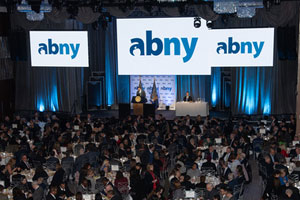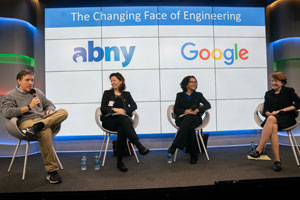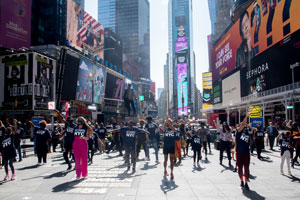June: Education
We are honoring YPs improving New York City through their work in education.
Congratulations to our June Spotlights of the Month, Kiersten Gibson-Cooper and Brian Lewis!
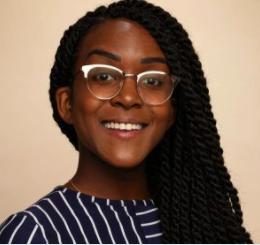
Kiersten Gibson-Cooper
I am a proud graduate of Temple University’s African-American Studies Program. My undergraduate coursework provided me with an education I never received throughout my K-12 experience. I learned more about myself, my history, and the sacrifices my ancestors made for me to be where I am today. My undergraduate experience also deepened my understanding of the ways in which racism and white supremacy negatively impact the lives of Black, Indigenous, and People of Color, and how it often leads to the unjust murders of innocent Black and Brown folks. This educational experience led me to teach 6th Grade ELA in Holly Springs, Mississippi as a Corps Member with Teach for America in 2013. I entered into teaching to dismantle the systems of oppression that consistently take us away from equity and liberation. After continuing to teach Middle School ELA in both Mississippi and New York (including a year teaching Elementary school!), I started to realize it is much more difficult to dismantle an oppressive system from within. Instead, being a leader of a system gives one more significant ability to partner with others to shift, mold, and adjust the system away from perpetuating systems of oppression and towards operating in ways that promote equity and liberation. In exploring ways in which I could be a systems leader, I sought various leadership roles outside of school as a Policy Advisor Fellow for Leadership for Educational Equity, and a Teacher Education Facilitator for Teach For America. Ultimately, this led me to explore more leadership opportunities within my school and network as a Grade Level Lead, New Teacher Professional Development Designer Facilitator, and an Equity Professional Development Facilitator. To prepare for stepping into the role of a Middle School Principal, I served as Principal-in-Residence at my school and a National Principal Fellow at Relay Graduate School of Education this past year.
I am most proud of the relationships I have built throughout my time in education—with students, families, colleagues, and mentors. Without these relationships, I would not be able to share my experiences with you today. Through each of the bonds, I have learned and grown. My students taught me not to be afraid of feedback, to solicit it, listen to it, and to act on it. If you are looking for unfiltered, raw, and honest feedback—ask a middle school student! They are not afraid to speak up! Families taught me the importance of assuming the best—every single family wants the best for their child, and it’s vital for educators not only to acknowledge and internalize that but to be active in supporting families to get the best for their child. Colleagues and mentors taught me how essential it is to collaborate and seek help. The weight of this work is too heavy to do alone, and we must distribute this weight to move the work along. I am also proud of and grateful for the opportunity to lead a community of students, families, and committed faculty who are eager to work together in service of our students making equitable academic and social-emotional growth. At Windsor Terrace Middle School, we have the unique opportunity to serve an intentionally diverse population in one of the most segregated cities in America. There is power in diversity and we have taken the first step as an organization by committing to maintaining a diverse student body and staff. Our diverse population allows us to learn from each other’s experiences and widen our worldview, in service of making a positive impact on society. Our next step is continuing to uphold equity and inclusion in our work. We must continue to ensure that the diverse voices in our community have equitable access to communicate their perspectives and that their views are heard by the adults in our school community to promote a collaborative partnership.
Be resilient. Be clear on your purpose and consistently reconnect to it (particularly when things get challenging). Grant yourself and others grace. And focus your time and energy on what you can control and influence.
I’ll never be a New Yorker. Philly to the core! It’s my hometown. And plus, the soft pretzel in New York will NEVER have anything on what Philly has to offer.
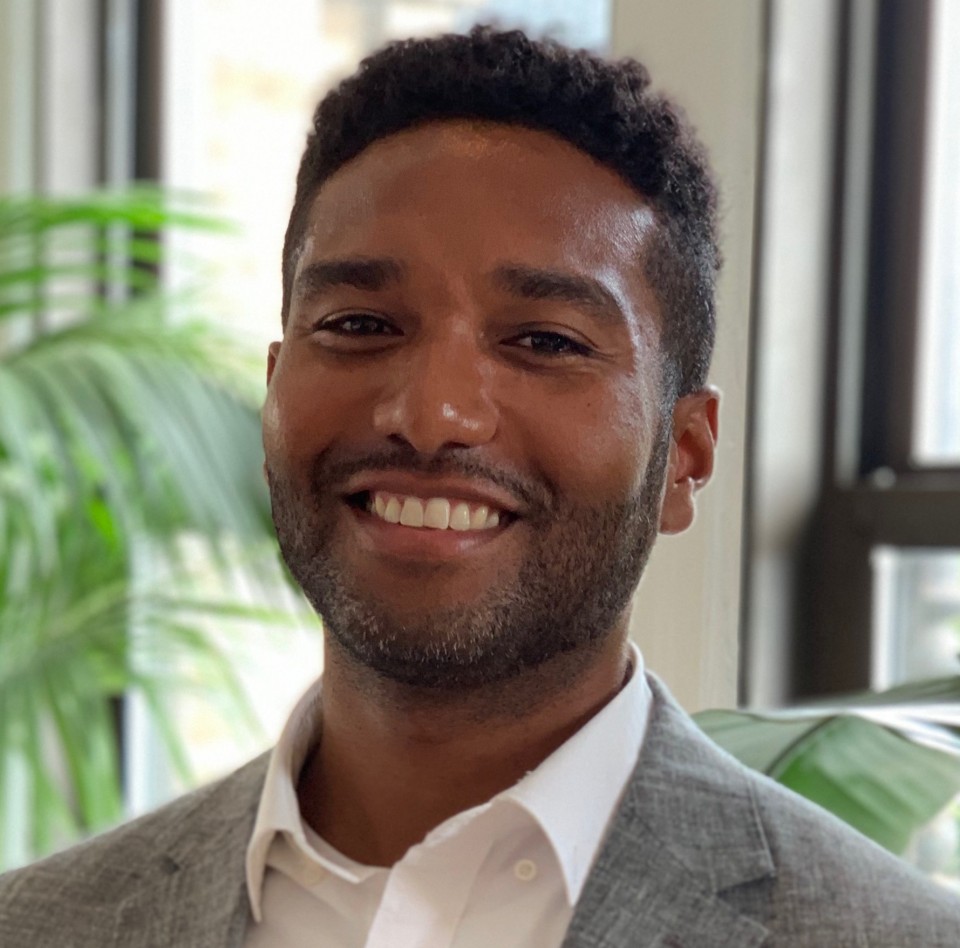
Brian Lewis
I’ve gotten where I am today through a combination of my passion/commitment to social justice and also from having a supportive network of family, friends and mentors who have continually made investments in my professional success and well-being. I’ve worked hard for my success and have paid my dues through persistent effort, but I also subscribe to the belief that success cannot happen in a vacuum and have always held true to the Ubuntu proverb: “I am, because we are.”
I’m most proud of the years of freedom that have been reclaimed by the young people we serve. It can be difficult to quantify the impact of a concept like freedom, but we can definitively say that because of our work, hundreds of young people who would have served (each) up to 15 years in jail, had we not intervened and gotten involved in their cases and lives, have gotten those years back to live and strive to achieve their full potential. We’ve done this by being courageous to question convention and authority, by standing up for and alongside the very young people that many in our society want to write off and deny opportunities, and by building and fine tuning unique in-person and (now) online curriculum and experiences for them. I’m proud that we’ve kept this work going and have provided uninterrupted services during this pandemic. In fact, we’ve stepped up our engagement by offering more virtual workshops and classes and increasing their stipend rate to complete what we’re calling “virtual internships.” Perhaps the most important feature of this work has been cultivating a community of supportive referral, internship and court partners who are dedicated to our mission of elevating expectations for court-involved youth. We’ve stepped up this work during the pandemic as well, with partners such as the Black Googlers Network and NBA. It makes me immensely proud that these brilliant young people are pursuing careers, happiness and ultimately walking around with this precious thing: freedom, because of the work we’ve all done together.
I’d advise someone who wants to work in this field to keep being fueled by the passion and desire to make the world better, but to temper and balance that with patience and a willingness to be adaptable. I’ve spent my entire career in the education/social justice/human services space, so I can’t compare this to any other line of work. I will say from my experience that in terms of every aspect of my work: whether as a teacher, manager or director, I’ve always found my work challenging, engaging, and incredibly rewarding. Adjusting in the midst of this pandemic has been challenging, but I was also able to reflect and look back at past experiences to recognize that I possessed the tools to get through this crisis and help those around me to do the same. At exalt, we created cross department teams to generate innovative solutions collaboratively – and this allowed us to work quickly to develop an online curriculum that maintained the primary features of our organization and work. We were able to do this in a short amount of time with an immense amount of pressure. This will be critical now, especially since so many more NYC young people will be in need engagement and services with the budget cuts and reduction in services associated with COVID-19 and its economic impact. I’d say the main thing I’ve come to understand that people will need to know to succeed in this field, especially in the strange new COVID-19 world we are inheriting, is to understand change. How does it happen? Why is change important? In what ways are people resistant to it? And how can we move ahead collaboratively with an approach that benefits us all, but that especially focuses on empowering people who are under-resourced and marginalized?
I grew up in Chicago and am proud of my Chicago roots, so Chicago will always be a part of me, but I moved to New York to go to school when I was 18. I then bounced back and forth between Chicago and New York for a few years after graduating college and landed in New York again after graduate school and ultimately made a career and a life in New York. I would say that the moment when I realized I was a New Yorker came 6 years ago, when I first started working at exalt. One day, I was on my way to work in the oppressive heat of summer. I was dripping in sweat coming up from the subway stairs and a small group of tourists jumped in front of me to stop me and ask me for help to get where they were going. I provided them with full directions as well as some suggestions for various train routes to get there. At that point it dawned on me that the tourist could have asked me anything about New York and I would have been able to provide a quick and robust answer. It was in those moments as I returned to my commute and tried to walk around downtown Brooklyn a bit to cool off before entering the office, that I reflected and knew that I considered New York home.

